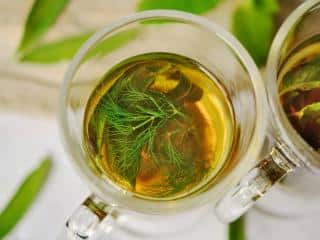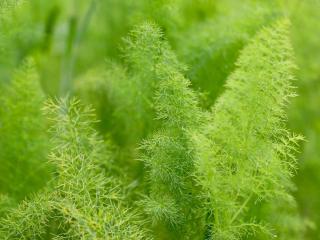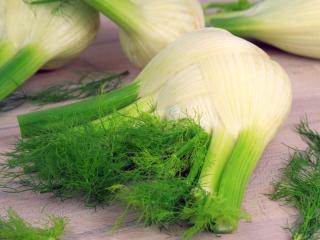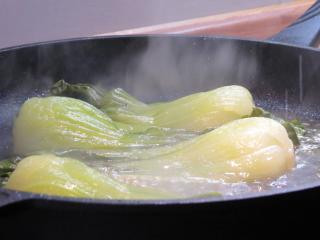

Very easy to identify thanks to its soft sweet aniseed fragrance, fennel is a biennial plant of which the bulb is eaten for its culinary value as well as its health benefits and therapeutic value.
This herb vegetable native the Mediterranean area and the Caucasian mounts is very popular in Italy. It belongs to the Apiaceae family and grows up to 32 inches (80 cm) tall.
With high levels of carbohydrates, vitamin C, potassium and calcium, fennel is a vegetable which has many beneficial properties that support crucial body functions.
 Just like aniseed, coriander and caraway, fennel is one of the “four warm seeds”, it eases digestion, is a carminative and galactagogue (activates lactation). Fennel increases contractions, activates the glands of the digestive tract for them to secrete more fluids, and really works well against unwanted flatulence.
Just like aniseed, coriander and caraway, fennel is one of the “four warm seeds”, it eases digestion, is a carminative and galactagogue (activates lactation). Fennel increases contractions, activates the glands of the digestive tract for them to secrete more fluids, and really works well against unwanted flatulence.Did you know…?
Fennel is a spice that French Provence particularly holds dear. Fennel delicately flavors fish, olives and… snails! Thinly chopped and spread on difficult to digest meals, fennel leaves help the body digest them nonetheless.
Fennel root decoction: 0.7 to 1 oz (20 to 30 g) roots par quart (liter) of water as a diuretic or simply to excite the appetite.
Fennel seed infusion: use ½ to 1 oz (15 to 30 g) seeds for 1 quart (1 liter) boiling water. Drink one cup after each meal. It is also possible to prepare stimulating wine, if you macerate 1 to 1½ oz (30 to 50 g) seeds for 1 quart (1 liter). Drink one cup during large meals to aid digestion and increase lactation.
Crushed fennel leaf poultices or concentrated leaf decoction compresses. Use against the swollen breast pains.
For fennel, sun and heat are the rule. Other than that, fennel appreciates light soil, cool and humus-rich, but never drenched with water.
Tips:

For propagation, sow in a sheltered place in March and April or sow in the vegetable patch directly from May to July. Thin to 8 inches (20 cm).
Potted fennel:
Growing fennel in pots isn’t really recommended. It is much less vigorous and tends to have trouble forming a head.
Watch out for small bugs!
The only worry to keep in mind is aphids.

The fennel that is most eaten is the Florence fennel.
Once cooked, fennel has less calories than when it is eaten raw. However, it also loses its vitamin C in the process.
Fresh or dry fennel leaves delicately flavor fish, mixed salads and sauces. The fennel head or bulb can be eaten raw or cooked (grilled or steamed).
 Use young fennel sprouts and any simple mixed salad will raise to a godly status.
Use young fennel sprouts and any simple mixed salad will raise to a godly status.25 kcal / 3.5 oz (100 g). Fennel is appetite-inducing and diuretic. It contains potassium, calcium, fiber, carotene as well as vitamins A, B, C, E, B9. In the form of herbal tea, it increases the quality of sleep.
Blandine Merlin